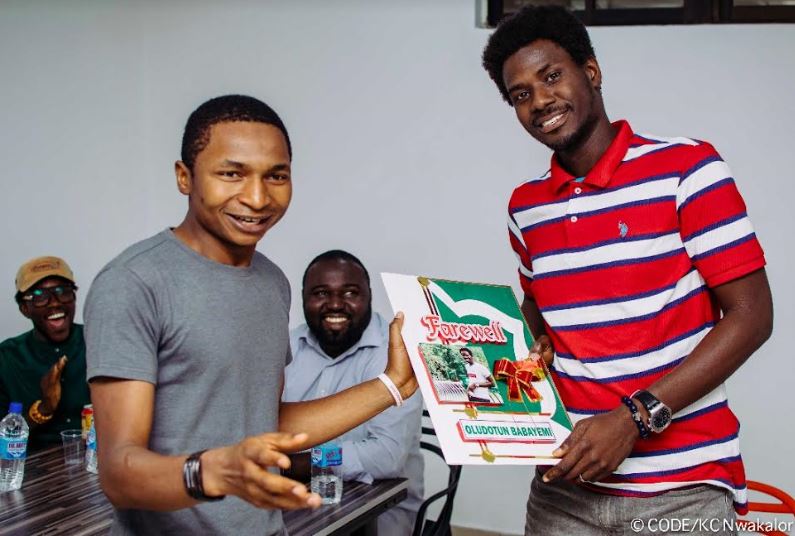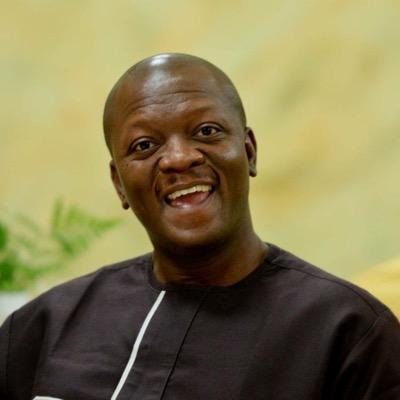BY NIMI WARIBOKO
Last Friday, February 9, 2018 at Harvard University I saw the play Hear Word: Naija Woman Talk True, co-written and directed by Ifeoma Fafunwa. For about 100 minutes the audience was held spellbound, occasionally clapping, and when the play came to an end there was a standing ovation.
The play highlights the sufferings of women in Nigeria and in so doing it raises fundamental questions about nation-building and social ethics. The play is deeply entertaining as it is profoundly philosophical. Take for instance, the issue of adultery. Without being didactic, the play takes the audience into deep philosophical ruminations about adultery in ways that speaks beyond Nigerian culture. In the deep structure of the play there are four types or levels of adultery. Adultery is not only about sex outside marriage and it provides a handle to organize our thoughts about gender discriminations in Nigerian culture.
First, adultery is presented as a husband sleeping with women outside the matrimonial home. The Nigerian woman endures insults and humiliations because of this. Second, Jesus Christ supplemented this Mosaic understanding of adultery. He said to look lustfully after a woman is also adultery. The play brings this point up in the form of complaint about eyes of married Nigerian husbands going to and fro on the face of the earth for new wives to replace, displace, or substitute the ones at home.
Advertisement
Let us turn to the third form of adultery that Hear Word addresses and you might have missed it. Richard Wagner in his play, Jesus of Nazareth, states that sex in a loveless marriage is adultery. Just as Jesus radicalizes Moses’ commandment, Wagner radicalizes Jesus’s commandment. Wagner writes: “The commandment saith: Thou shalt not commit adultery! But I say unto you: Ye shall not marry without love. A marriage without love is broken as soon as entered into, and who so hath wooed without love, already hath broken the wedding.” Nigerian women are forced to enter or stay in loveless marriages because of culture, religion, or economic necessity. By Wagner’s definition of adultery these women suffer the pain of adultery beyond levels one and two. The pain of adultery here is, among others, the institutionalized stealing of the woman’s rights to basic decency, respect, and independence.
Finally, Hear Word points us to yet another level of adultery, something bigger than the robbery of women’s rights in the matrimonial home. Bertolt Brecht asks in his Beggar’s Opera, what is bank robbery compared with the founding of a bank? If banks are founded on stolen people’s money, what does stealing from them really mean? What is sex outside of marriage when the legal basis of marriage is the robbery of a preteen girl’s youth, education, destiny, and potentials? Why counsel a woman about obedience to her “lord and master” when her marriage was founded on violent disregard ofher personhood or subjectivity? Is such a marriage not annulled even before it starts?
Indeed, Hear Word modifies our conception of adultery, as it even invites us to modify our understanding of gender roles. Does this line of deepening thought—going from the obvious to the fundamental issue of constitutive violence at the root of every culture—not raise questions about the viability of Nigeria’s social institutions? Do we only debate or quibble about the “surface” failures of Nigerian institutions or do we question their legitimacy? Indeed, the second half of the play relentlessly raises this deeper level of subversive questions. We must applaud the subversive reasoning of Hear Word and also think about how best to live into the new sites of gender equality it beckons.
Advertisement
Hear Word is full of sites of dramatic shifts about meanings of inherited cultural notions as it presses to unleash the revolutionary potentials of Nigerian women. This is obvious not only in the whole theme of the play, but also in Ifeoma Fafunwa’s deployment of long narratives, declarations, or women’s talks as the fulcrum of the play. The technique of long narration performs a theorization of the subjective metamorphosis of women. Hear Word is not about events happening in the form of acting, actions, and narratives; it is, rather, about long narratives disrupting events on the stage. Narratives recapitulate what happened in the past or what transpired before the play as a whole or before a particular scene in the play. Events are not rendered in the play or on stage, but we hear, see, or receive them as narrative representations.
It seems to me that the director Ifeoma Fafunwa carefully thought through this special technique of presenting the stories of Nigerian women. The performative logic of her technique is powerful. Ifeoma Fafunwa is saying that the moment of truth, emancipation, and subjective transformation (will) happens when the oppressed woman acts and declares (recounts) her actions. This is a technique also used by Richard Wagner in his late operas. Here the contemporary radical philosopher Slavoj Žižek’s comment on Wagner’s style is very helpful in interpreting the technique of long narration and declarations in Hear Word: “One does something; one counts oneself as (declares oneself) the one who did it; and, on the basis of this declaration, one does something new—the proper moment of subjective transformation occurs at the moment of declaration, not at the moment of the act. In other words, the truly New emerges through narrative, the apparently purely reproductive retelling of what happened—it is this retelling that opens up the space (the possibility) of acting in a new way” (Event, 133). The deep philosophical theory of subjectivity embedded in director Ifeoma Fafunwa’s vision of Hear Word is that the subjective transformation of Nigerian women into radical subjectivity will occur not only by acting, but also, and more importantly, by retelling their acts of gender and class struggle. How can Nigeria hear word if Nigerian women do not speak up?
Advertisement
Views expressed by contributors are strictly personal and not of TheCable.
Add a comment






